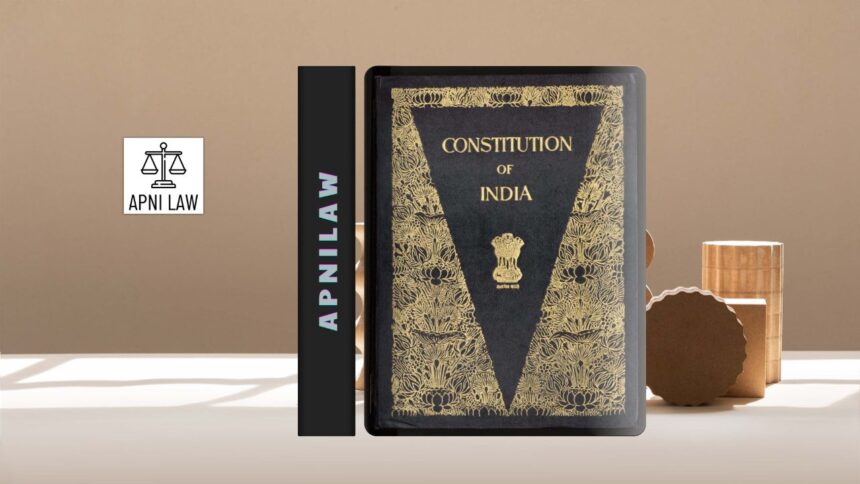The Anti-Defection Law in India, contained in the 10th Schedule of the Constitution, was introduced through the 52nd Amendment Act, 1985. Its main purpose is to curb unethical political defections caused by personal benefits, allure of office, or other incentives. The law ensures political stability and loyalty among elected representatives toward the party on whose ticket they were elected.
Core Provisions of the 10th Schedule
A legislator, whether an MP or MLA, can face disqualification if they voluntarily give up their party membership or vote, or abstain from voting, contrary to the party’s official directive (whip) without prior permission. Independent candidates who join a political party after being elected also face disqualification.
Nominated members are given a grace period of six months from the date of their appointment to join a political party; doing so after this period invites disqualification. The Speaker or Chairman of the concerned House decides all matters relating to disqualification. Initially, their decision was considered final, but after the Supreme Court’s ruling in Kihoto Hollohon (1992), such decisions are now subject to judicial review.
Exceptions and Amendments
Originally, the law allowed defections by one-third of the members under the “split” provision, but this was removed by the 91st Amendment Act, 2003, to make the law stricter.
However, a merger remains an exception. If at least two-thirds of the members of a legislative party agree to merge with another political party, such members are not disqualified. Additionally, if a legislator becomes the Speaker or Chairman and resigns from their party to maintain neutrality, it does not count as defection.
Process and Role of the Speaker
Any complaint of defection is submitted to the Speaker or Chairman of the respective House. The accused member is given an opportunity to present an explanation before the presiding officer makes a decision.
The decision of the Speaker or Chairman is treated as part of the legislative process but can be challenged in High Courts or the Supreme Court through judicial review. This ensures accountability and prevents misuse of authority.
Purpose and Impact
The Anti-Defection Law plays a vital role in strengthening the stability of elected governments. It prevents opportunistic switching of party loyalties that can destabilize administrations and betray voter trust.
By discouraging political horse-trading, it preserves the mandate of the people and ensures that elected representatives remain true to the ideology and platform on which they were voted into office.
Criticisms and Challenges
Despite its intent, the law has faced significant criticism. One major issue is the discretionary power vested in the Speaker or Chairman, who may sometimes act with political bias rather than impartiality.
Critics also argue that the law suppresses intra-party democracy, as legislators often cannot express dissent or vote independently due to the fear of disqualification. This has led to calls for reform to strike a balance between party discipline, freedom of expression, and legislative accountability.
Reform proposals include transferring the power of adjudicating defection cases from the Speaker to an independent tribunal or Election Commission, which would help reduce political interference.
For any specific query call at +91 – 8569843472
Conclusion
The 10th Schedule, commonly known as the Anti-Defection Law, serves as a constitutional safeguard against unprincipled political defections. It upholds the democratic values of stability, integrity, and voter confidence in India’s parliamentary system.
However, as politics evolves, the law must adapt to ensure it does not stifle healthy debate and dissent within parties. Judicial rulings, especially Kihoto Hollohon (1992), have refined the law’s application, but continued reforms are essential to maintain a fair balance between stability and democracy in India’s political landscape.








